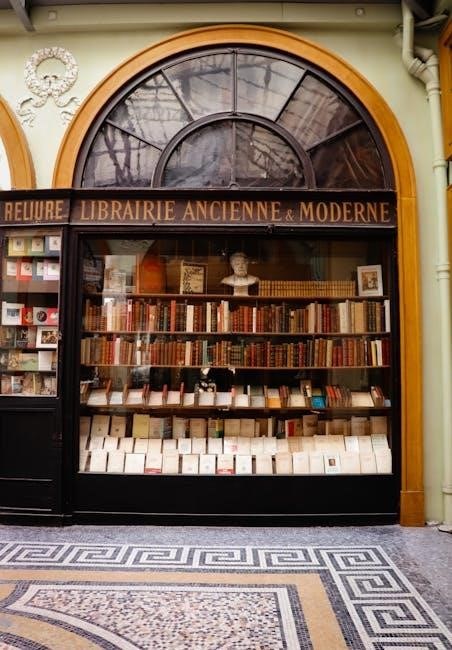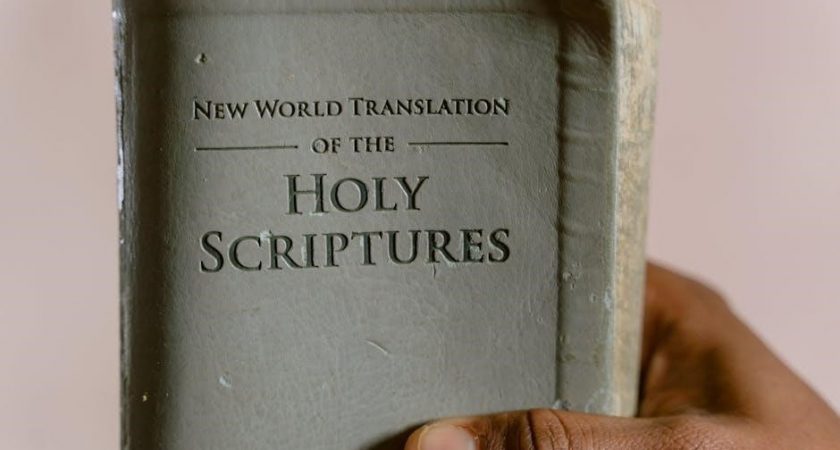The Norton Anthology of World Literature, 4th Edition, is a comprehensive and acclaimed collection of global literary masterpieces, edited by Martin Puchner. It offers a diverse range of works, from ancient texts to modern writings, providing students and scholars with a rich exploration of world literature’s evolution and cultural significance.
1.1 Overview of the Anthology and Its Significance
The Norton Anthology of World Literature, 4th Edition, is a foundational resource for exploring global literary traditions. Edited by Martin Puchner, it offers a diverse selection of works spanning millennia, from ancient epics to modern masterpieces. This anthology is renowned for its inclusive approach, featuring voices from various cultures and languages, making it a vital tool for understanding the richness and complexity of world literature. Its significance lies in its ability to bridge cultural gaps and provide a comprehensive view of literary history.
1.2 Key Features of the 4th Edition
The 4th Edition of The Norton Anthology of World Literature offers enhanced translations, expanded selections, and a broader representation of global voices. It includes new works from diverse cultures and periods, ensuring a more inclusive literary landscape. The edition also features updated introductions, commentaries, and resources, making it a valuable tool for both students and scholars seeking a deeper understanding of world literature.
Structure and Organization of the Anthology
The anthology is organized chronologically and thematically, spanning volumes that cover global literatures from ancient to modern times, ensuring a comprehensive and accessible exploration of world literature.
2.1 Volume Breakdown and Content Selection
The Norton Anthology of World Literature, 4th Edition, is divided into multiple volumes, each focusing on specific time periods and regions. The content selection emphasizes diversity, including works from ancient civilizations, medieval literatures, and modern global authors. Each volume is carefully curated to represent iconic texts, ensuring a balanced mix of canonical and contemporary writings that reflect the breadth of world literary traditions.
2.2 Chronological and Thematic Arrangement
The Norton Anthology of World Literature, 4th Edition, is organized chronologically, tracing literary developments from ancient times to the modern era. Additionally, thematic arrangements highlight shared human experiences and cultural exchanges, providing deeper context. This dual approach allows readers to explore literary evolution while connecting works across time and geography, enriching the understanding of global literary traditions and their interconnections.

Notable Authors and Works Included
The anthology features renowned authors like Homer, Sophocles, Shakespeare, and Virginia Woolf, alongside modern voices such as Toni Morrison and Gabriel García Márquez, showcasing diverse cultural and literary traditions.
3.1 Classic Works from Diverse Cultures
The anthology includes timeless masterpieces like Homer’s The Iliad and The Odyssey, Sophocles’ Oedipus Rex, and ancient Mesopotamian epics such as The Epic of Gilgamesh. It also features works from Asian literatures, including excerpts from Journey to the West and the Analects of Confucius, providing a global perspective on foundational literary achievements. These works highlight humanity’s shared experiences across cultures and history.
3.2 Modern and Contemporary Additions
The 4th edition expands its scope with modern and contemporary works, featuring authors like Franz Kafka, Virginia Woolf, and Gabriel García Márquez. It includes diverse voices from global literatures, such as African and Asian writers, reflecting the dynamic evolution of world literature. These additions provide students with insights into 20th- and 21st-century cultural shifts and literary innovations, enriching their understanding of the modern literary canon.

The Role of Editors and Contributors
Martin Puchner, as general editor, brings a visionary approach, supported by renowned scholars, ensuring diverse and representative selections that enhance the anthology’s academic and literary value globally.
4.1 General Editor Martin Puchner and His Vision
Martin Puchner, a renowned literary scholar, serves as the general editor of the 4th edition, bringing a wealth of expertise in world literature. His vision emphasizes inclusivity and diversity, ensuring the anthology represents a broad spectrum of global voices and traditions. Puchner’s scholarly contributions have significantly shaped the anthology’s structure and content.
His approach focuses on balancing classic works with modern and contemporary pieces, reflecting the evolving nature of world literature. Puchner’s leadership has been instrumental in making the anthology a vital resource for academic exploration and cultural understanding.
4.2 Contributions from Renowned Scholars
The 4th edition benefits from contributions by distinguished scholars, ensuring a rich and authoritative representation of world literature. Experts in various fields provide insightful commentary, introductions, and annotations, enhancing readers’ understanding of diverse texts and cultural contexts. Their collective expertise enriches the anthology, making it an invaluable resource for both students and educators.

Educational Impact and Usage
The Norton Anthology is widely adopted in universities globally, offering comprehensive literary coverage that supports diverse teaching approaches and enhances student learning experiences through accessible PDF formats.
5.1 Adoption in Academic Institutions Worldwide
The Norton Anthology of World Literature, 4th Edition, is widely adopted in universities worldwide due to its comprehensive coverage of global literary works. Its digital versions, including PDF formats, enhance accessibility for students and educators. Many institutions recommend it for world literature courses, ensuring a standardized and enriched learning experience across diverse academic settings globally.
5.2 Feedback from Students and Educators
The Norton Anthology of World Literature, 4th Edition, has received widespread acclaim for its diverse and inclusive content. Educators praise its comprehensive scope and updated translations, while students appreciate the digital accessibility, particularly the PDF format. Feedback highlights its effectiveness in fostering a deeper understanding of global literatures. However, some note the subjective nature of content selection and occasional challenges in navigating the vast anthology.
Availability of the PDF Version
The Norton Anthology of World Literature, 4th Edition, is widely available in PDF format online. It can be accessed through various platforms, including academic databases, ebook retailers, and institutional libraries, offering convenience for students and researchers worldwide.
6.1 Legal and Free Access Options
The Norton Anthology of World Literature, 4th Edition, is accessible through legal and free options, such as academic databases, library subscriptions, and platforms offering complimentary access for educational purposes. Some universities provide the PDF for free to enrolled students, while platforms like Google Scholar or institutional repositories may host the text. Always ensure to use authorized sources to comply with copyright laws.
6.2 Platforms for Downloading the PDF
Several platforms offer the Norton Anthology of World Literature, 4th Edition, in PDF format for download. These include online libraries, educational databases, and e-book platforms like Google Scholar or Project MUSE. Additionally, some websites provide direct download links, though verifying their legitimacy is essential. Always prioritize authorized sources to ensure compliance with copyright laws and access high-quality, accurate versions of the text.
Benefits of the Digital Format
The digital format of The Norton Anthology of World Literature offers unparalleled convenience, enabling easy access and portability. Enhanced search and navigation features facilitate efficient studying and research.
7.1 Convenience and Accessibility
The digital format of The Norton Anthology of World Literature offers unmatched convenience, allowing users to access the text instantly across multiple devices. The PDF version ensures portability, enabling students to study anywhere, anytime. Its compatibility with smartphones, tablets, and laptops enhances accessibility, while features like adjustable text size and night mode improve readability, making it an indispensable tool for academic success.
7.2 Enhanced Search and Navigation Features
The PDF version of The Norton Anthology of World Literature boasts advanced search capabilities, enabling quick access to specific texts, authors, and themes. Hyperlinked tables of contents and indexes simplify navigation, allowing users to jump between sections effortlessly. These features enhance the learning experience by saving time and enabling focused study, making the digital edition a valuable resource for efficient academic exploration and research.
Challenges and Controversies
The anthology faces challenges like copyright disputes and criticisms over content selection, with some arguing it marginalizes certain voices or overrepresents others, sparking debates on diversity and representation.
8.1 Copyright Issues and Piracy Concerns
The availability of The Norton Anthology of World Literature, 4th Edition in PDF format has raised concerns about copyright infringement and piracy. Despite legal measures to protect the anthology, unauthorized downloads persist, violating copyright laws and impacting the publishing industry. Efforts to combat piracy include digital rights management and legal action, but the ease of sharing digital content remains a significant challenge, highlighting the tension between accessibility and intellectual property rights.
8.2 Criticisms of Content Selection
Despite its comprehensive scope, the 4th edition of The Norton Anthology of World Literature has faced criticism for perceived gaps in representation. Some scholars argue that certain regions and authors remain underrepresented, while others question the balance between classic and modern works. These critiques highlight the challenges of curating a global literary anthology, as editorial choices inevitably reflect subjective priorities and cultural biases.

Supplements and Companion Resources
The anthology is supported by online resources, including study aids and instructor materials, enhancing both student engagement and teaching effectiveness through digital tools and guides.
9.1 Online Resources for Students
The Norton Anthology of World Literature, 4th Edition, offers extensive online resources for students, including study aids, interactive timelines, and downloadable PDF guides. These tools enhance understanding and engagement with the texts. The anthology’s companion website provides additional materials, such as essay questions, glossaries, and audio recordings, to support deeper analysis of literary works. Students can also access free PDF versions of selected chapters for convenient study.
9;2 Instructor Materials and Teaching Guides
Instructors utilizing The Norton Anthology of World Literature, 4th Edition, benefit from comprehensive teaching guides and resources. These include sample syllabi, lecture outlines, and discussion prompts, all available in PDF format. Additionally, the anthology’s website offers downloadable instructor’s manuals with detailed analyses and teaching strategies to enhance classroom instruction and facilitate student engagement with the diverse literary works presented in the anthology.

Cultural and Historical Context
The Norton Anthology of World Literature, 4th Edition, provides rich cultural and historical context for each work, ensuring readers understand their origins and significance. From ancient epics to modern texts, the anthology offers insights into global traditions, enabling a deeper appreciation of literary diversity and its historical development.
10.1 Representation of Global Literatures
The Norton Anthology of World Literature, 4th Edition, excels in representing global literatures, showcasing works from diverse cultures, regions, and time periods. It includes texts from Asia, Africa, Europe, the Americas, and the Middle East, spanning ancient to contemporary writings. This inclusive approach highlights the richness of global literary traditions, offering readers a comprehensive understanding of the world’s cultural and literary heritage in one cohesive collection.
10.2 Historical Development of World Literature
The Norton Anthology of World Literature, 4th Edition, traces the historical development of global literatures, from ancient epics to modern masterpieces. It highlights key movements and periods, such as classical antiquity, the Middle Ages, Renaissance, Enlightenment, Romanticism, and contemporary writing. This chronological arrangement allows readers to explore how literary traditions have evolved over time, reflecting cultural, social, and political changes across the world’s diverse civilizations and historical contexts.
The Norton Anthology of World Literature, 4th Edition, remains a foundational resource for exploring global literary traditions. Its legacy as a comprehensive and influential collection ensures its continued relevance. Future editions may incorporate more diverse voices and digital enhancements, further solidifying its role as a cornerstone of literary education and scholarship worldwide.
11.1 The Anthology’s Legacy and Influence
The Norton Anthology of World Literature, 4th Edition, has left an indelible mark on literary education, shaping global understanding of diverse cultural and historical narratives. As a foundational resource, it has influenced generations of scholars and students, offering unparalleled access to seminal works. Its legacy lies in its ability to bridge cultures and time, fostering a deeper appreciation of world literature’s richness and complexity.
11.2 Potential for Future Editions and Updates
Future editions of The Norton Anthology of World Literature are anticipated to incorporate emerging voices and digital enhancements, ensuring its relevance in evolving academic landscapes. With a focus on inclusivity and technological integration, updates may expand representation of underexplored regions and genres, while interactive features could enhance student engagement. These advancements will solidify the anthology’s role as a dynamic, indispensable resource for global literary study.
